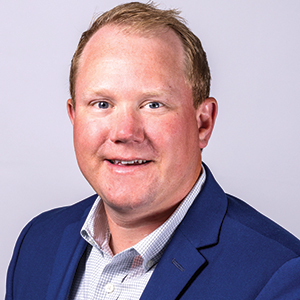From having a transition plan to working with a team of trusted advisers, a lot goes into acquiring a practice. What is the first step to get the process rolling?
“First, it’s important to look for a banking partner who has industry knowledge,” says Eric Jones, VP, commercial lending at First Federal Lakewood. “This partner will be able to provide the most appropriate plan for you based on the overall financial picture of the practice and will guide you toward success.”
Smart Business spoke with Jones about what medical professionals need to know when acquiring a practice.
What goes into acquiring a practice?
Doing your due diligence is one of the most important pieces of acquiring an existing medical practice. This means looking at every aspect, including staffing, location, active patient count, the potential for new patients, and existing equipment and software.
Be cognizant of existing software that you currently use and the software used by the practice you want to acquire. Will a change in software make it difficult on your staff? Will you need to adapt to the new software yourself, which may temporarily slow down your production? If it will take time to get up to speed on new software, make sure you have a transition plan in case you need to keep the existing doctor on staff for a short period of time. This ensures you’re not losing patient time, and office revenue doesn’t decrease while you’re learning the new system and software.
Overall, a transition plan is key for a smooth acquisition. Your business banker will recommend you have a three-, six- or 12-month transition plan, which covers the staffing situation with the current doctor and allows for existing patient introductions.
Lastly, aligning yourself with a team of trusted advisers that specialize in the health care field is crucial, including an attorney, CPA, real estate broker, builder, architect and equipment rep. These advisers can help guide you through specifics that others may not be aware of. A CPA who specializes in the health care field may know specific deductions to look for in a practice, and a real estate broker can look at specific needs of a practice in regard to layout and if any additional buildout is needed.
Make sure these advisers are on the same page and they’re communicating with each other for a seamless acquisition.
How do you attract employees once you acquire a practice?
As wages continue to increase, many health care professionals find it harder to keep and attract new employees. Providing incentives, like insurance and retirement, is a great way to draw in new staff.
Usually, the smaller the staff, the more expensive it is for private medical practices to provide benefits for employees. Professional Employer Organization (PEO) firms or a local chamber of commerce can offer these services for employers. Medical professionals find that connecting with these organizations helps keep wages level while continuing to provide benefits that employees look for in a practice.
What makes a good banking partner during the practice acquisition process?
Like a trusted adviser, the right banking partner must have health care industry knowledge. They will be able to answer your questions about practice acquisition financing, including different ways to go about the process and make it advantageous for you — whether it’s an interest-only period to get you up and running or a creative financing plan. Plus, they can provide information regarding doctor-specific loans or investment real estate products to give you an opportunity to expand your portfolio.
Additionally, look for a health care banker who’s flexible. Are you looking to acquire one practice or several? The right banking partner will understand your long-term goals and make sure the financing piece aligns with what you envision.
Overall, look for a lender who can provide the highest level of service and is accessible beyond lending. You want to be able to contact your banker directly, not spend time calling a general 800 number to ask a question. It’s important that the lender you work with is engaged with you throughout the whole process and understands your current and long-term plans. ●
INSIGHTS Banking & Finance is brought to you by First Federal Lakewood

